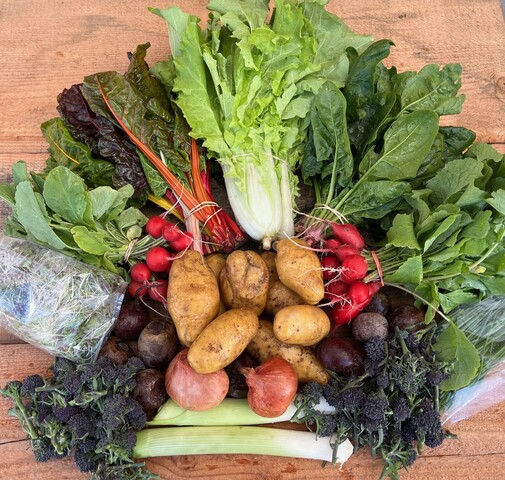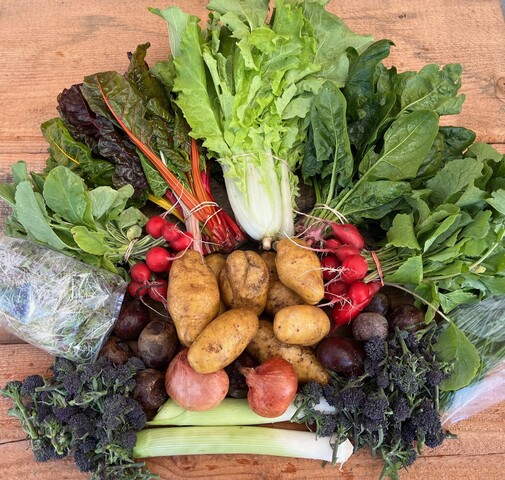
How Evolving Local Food Laws Can Safeguard Your Homestead
The aroma of sun-ripened tomatoes and freshly baked bread used to fill Sarah’s stand at the local farmers market. For years, she’d supplemented her family’s income selling the bounty of her garden and kitchen – a lifeline for their small homestead. Then, last year, new regulations hit. Suddenly, the process for obtaining permits was more complex, requiring costly kitchen upgrades and specific labeling she couldn't afford. Sarah, like many small-scale producers in the Pacific Northwest, felt squeezed, the dream of a thriving, self-sufficient homestead threatened by the very system meant to support it.
Changes to local food laws are increasingly impacting homesteaders across the Pacific Northwest. These evolving regulations, while often intended to ensure food safety and consumer protection, can create significant hurdles for small-scale producers engaged in direct sales. This article will break down the key changes you need to know to navigate these new rules and safeguard your homestead.
Understanding the Shifting Landscape of Food Regulations
Across Washington, Oregon, and Idaho, local food laws are in a state of flux. Driven by concerns ranging from foodborne illness outbreaks to standardization of sales practices, state and county governments are updating their regulations. The implications for homesteaders are considerable, impacting everything from what you can sell to how you can sell it.
Key Changes Affecting Pacific Northwest Homesteaders
Several specific areas of food law are experiencing significant changes:
- Cottage Food Laws: These laws govern the sale of homemade foods produced in a home kitchen. Recent changes often include stricter guidelines on permissible products, increased labeling requirements, and limitations on annual sales.
- Permitting and Licensing: Obtaining the necessary permits to sell homestead produce and animal products is becoming more complex. This can involve facility inspections, food safety training, and ongoing compliance checks.
- Product Labeling: Detailed labeling requirements are now the norm. Labels must include information such as ingredients, allergens, production date, and contact information.
- Sales Restrictions: Some regulations place restrictions on where you can sell your products. For example, some counties may limit sales to farmers markets or on-farm stands, while others may allow online sales with specific conditions.
- Animal Product Regulations: Regulations surrounding the sale of eggs, raw milk, and other animal products are particularly stringent. Changes often focus on animal health, handling practices, and consumer warnings.

A bustling farmers market in the Pacific Northwest showcases the importance of direct sales for local homesteaders.
Specific Examples of Recent Changes
While specifics vary by state and county, here are a few examples of recent changes:
- Washington State: Updates to the Cottage Food Operation rules have increased training requirements and changed the type of items allowed to be sold. Some local jurisdictions are now requiring permits for on-farm stands that were previously exempt.
- Oregon: Oregon is actively reviewing its food safety regulations, potentially leading to increased inspections for small-scale producers. There's also increased focus on ensuring proper labeling of allergens in cottage food products.
- Idaho: Idaho has seen increased scrutiny on raw milk sales, with stricter enforcement of existing regulations and debates about potential restrictions on direct-to-consumer sales.
Navigating the New Regulations: A Practical Guide for Homesteaders
Staying compliant with these evolving food regulations requires proactive steps. Here's a practical guide:
- Know Your Local Laws: Begin by researching the specific food laws in your county and state. Your state's Department of Agriculture website is a great place to start.
- Attend Workshops and Training: Many organizations offer workshops and training sessions on food safety and regulatory compliance.
- Accurate Labeling: Accurate, clear and honest labeling is important. Make sure that your labels are compliant with local requirements.
- Consult with Experts: If you're unsure about any aspect of the regulations, consult with a food safety specialist or legal professional.
- Join a Local Homesteading Community: Connect with other homesteaders in your area to share information and support.
- Advocate for Change: If you believe the regulations are unfairly impacting your ability to operate, contact your local representatives and voice your concerns.
The Importance of Community Resilience

Community resilience is paramount in the face of changing food laws. Homesteaders can support one another through knowledge sharing and advocacy.
These changes highlight the need for community resilience. Supporting local farmers and homesteaders strengthens our local food systems and ensures access to fresh, healthy food. By understanding and navigating these regulations, we can help ensure that small-scale producers like Sarah can continue to thrive.
Advocating for a Sustainable Future
The future of local food systems depends on our ability to create fair and accessible regulations. The changes in local food laws can impact the direct sale of home-grown produce and animal products by making it difficult for local homesteaders to compete. This situation highlights the importance of advocating for policies that support sustainable agriculture and community resilience. We must support fair and accessible food laws.
![Infographic summarizing key changes in the food law] (https://valleyflorafarm.com/sites/default/files/styles/large/public/Winter%205_0.jpg?itok=QcACKg3Y)
Take Action Today!
Don't let these changes stifle your homesteading dreams. Contact your local representatives and voice your support for fair and accessible food laws. Use our template email [link to template] to make your voice heard! Join the "Better Homes and Harvests" online community [link to group] to discuss these changes and share strategies for navigating the new regulations. Together, we can ensure a thriving future for homesteading in the Pacific Northwest.